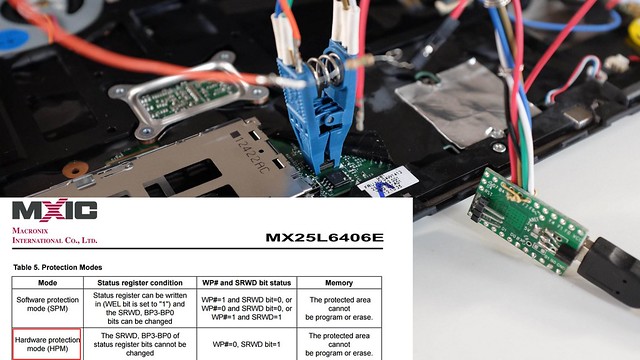CONFIG_PREEMPT_NONE=y: Remove preemptiveness for servers. Under heads, we are single tasking. No point having this big thing in kernel https://lwn.net/Articles/746780/ IO scheduler: only enable CONFIG_MQ_IOSCHED_DEADLINE=y since we want maximum throughput and do not have concurrent tasks CONFIG_CPU_ISOLATION=y : Enable CPU Isolation accross all boards: this permits to make sure that the kernel tasks running on a CPU are not distrurbed bu user tasks CONFIG_MULTIUSER not defined: Removing cluttering since we are single root user under Heads anyway CONFIG_IO_URING=y : limit number of copy operations between kernel and user space from apps CONFIG_ZONE_DMA not defined: relevant for older hardware (less then 32bit addressing space) CONFIG_X86_MPPARSE not defined: relevant for older smp systems CONFIG_CPU_FREQ_DEFAULT_GOV_PERFORMANCE is enabled and SCHEDUTIL is disabled: we want performance with CPU sched with deadline IO. CONFIG_PERF_EVENTS_INTEL_UNCORE and CONFIG_PERF_EVENTS_INTEL_CSTATE not defined: we want max perf on Heads CONFIG_X86_VSYSCALL_EMULATION not defined: no need for syscall emulation under Heads CONFIG_SECCOMP not defined : usefull if BPF is enabled and used. CONFIG_ACPI_SPCR_TABLE=y : usefull for serial redirection table and earlycon CONFIG_PCI_MMCONFIG CONFIG_MMCONF_FAM10H unset but for kgpe-d16 which is either fam10h of fam15h CONFIG_DM_SNAPSHOT=y CONFIG_DM_THIN_PROVISIONING=y so that recovery shell can provide LVM/DM functionality in later PR. CONFIG_EXFAT_FS=y so that exfat preformated thumb drives can work out of the box Adjust CONFIG_HW_RANDOM per platform, removing CONFIG_HW_RANDOM_TIMERIOMEM Only support processor family needed per board (AMD only AMD, Intel only Intel, removing CONFIG_CPU_SUP_HYGON CONFIG_CPU_SUP_HYGON CONFIG_CPU_SUP_CENTAUR CONFIG_CPU_SUP_ZHAOXIN CONFIG_CPU_SUP_ZHAOXIN everywhere qemu: support both AMD and INTEL as an exception for the above. Removed unused compiled modules unpacked under modules.cpio Removed not needed crypto modules compiled in or as modules, reviewed from https://github.com/osresearch/heads/issues/1396#issuecomment-1538780319 : CONFIG_CRYPTO=y CONFIG_CRYPTO_ALGAPI=y CONFIG_CRYPTO_ALGAPI2=y CONFIG_CRYPTO_AEAD=y CONFIG_CRYPTO_AEAD2=y CONFIG_CRYPTO_SKCIPHER=y CONFIG_CRYPTO_SKCIPHER2=y CONFIG_CRYPTO_HASH=y CONFIG_CRYPTO_HASH2=y CONFIG_CRYPTO_RNG=y CONFIG_CRYPTO_RNG2=y CONFIG_CRYPTO_AKCIPHER2=y CONFIG_CRYPTO_KPP2=y CONFIG_CRYPTO_ACOMP2=y CONFIG_CRYPTO_MANAGER=y CONFIG_CRYPTO_MANAGER2=y CONFIG_CRYPTO_USER=y CONFIG_CRYPTO_MANAGER_DISABLE_TESTS=y CONFIG_CRYPTO_NULL=y CONFIG_CRYPTO_NULL2=y CONFIG_CRYPTO_CRYPTD=y CONFIG_CRYPTO_AUTHENC=y CONFIG_CRYPTO_SIMD=y CONFIG_CRYPTO_GLUE_HELPER_X86=y CONFIG_CRYPTO_CBC=y CONFIG_CRYPTO_ECB=y CONFIG_CRYPTO_XTS=y CONFIG_CRYPTO_ESSIV=y CONFIG_CRYPTO_HMAC=y CONFIG_CRYPTO_CRC32C=y CONFIG_CRYPTO_CRC32C_INTEL=y CONFIG_CRYPTO_MD5=y CONFIG_CRYPTO_SHA1=y CONFIG_CRYPTO_SHA1_SSSE3=y CONFIG_CRYPTO_SHA256_SSSE3=y CONFIG_CRYPTO_SHA512_SSSE3=y CONFIG_CRYPTO_SHA256=y CONFIG_CRYPTO_SHA512=y CONFIG_CRYPTO_AES_NI_INTEL=y CONFIG_CRYPTO_USER_API=y CONFIG_CRYPTO_USER_API_HASH=y CONFIG_CRYPTO_USER_API_SKCIPHER=y CONFIG_CRYPTO_USER_API_RNG=y CONFIG_CRYPTO_USER_API_AEAD=y CONFIG_CRYPTO_HASH_INFO=y CONFIG_CRYPTO_LIB_AES=y CONFIG_CRYPTO_LIB_SHA256=y
Heads: the other side of TAILS
Heads is a configuration for laptops and servers that tries to bring more security to commodity hardware. Among its goals are:
- Use free software on the boot path
- Move the root of trust into hardware (or at least the ROM bootblock)
- Measure and attest to the state of the firmware
- Measure and verify all filesystems
NOTE: It is a work in progress and not yet ready for non-technical users. If you're interested in contributing, please get in touch. Installation requires disassembly of your laptop or server, external SPI flash programmers, possible risk of destruction and significant frustration.
More information is available in the 33C3 presentation of building "Slightly more secure systems".
Documentation
Please refer to Heads-wiki for your Heads' documentation needs.
Building heads
make BOARD=board_name where board_name is the name of the board directory under ./boards directory.
In order to build reproducible firmware images, Heads builds a specific
version of gcc and uses it to compile the Linux kernel and various tools
that go into the initrd. Unfortunately this means the first step is a
little slow since it will clone the musl-cross-make tree and build gcc...
Once that is done, the top level Makefile will handle most of the
remaining details -- it downloads the various packages, verifies the
hashes, applies Heads specific patches, configures and builds them
with the cross compiler, and then copies the necessary parts into
the initrd directory.
There are still dependencies on the build system's coreutils in
/bin and /usr/bin/, but any problems should be detectable if you
end up with a different hash than the official builds.
The various components that are downloaded are in the ./modules
directory and include:
We also recommend installing Qubes OS,
although there Heads can kexec into any Linux or
multiboot
kernel.
Notes:
- Building coreboot's cross compilers can take a while. Luckily this is only done once.
- Builds are finally reproducible! The reproduciblebuilds tag tracks any regressions.
- Currently only tested in QEMU, the Thinkpad x230, Librem series and the Chell Chromebook. ** Xen does not work in QEMU. Signing, HOTP, and TOTP do work; see below.
- Building for the Lenovo X220 requires binary blobs to be placed in the blobs/x220/ folder. See the readme.md file in that folder
- Building for the Librem 13 v2/v3 or Librem 15 v3/v4 requires binary blobs to be placed in the blobs/librem_skl folder. See the readme.md file in that folder
QEMU:
OS booting can be tested in QEMU using a software TPM. HOTP can be tested by forwarding a USB token from the host to the guest.
For more information and setup instructions, refer to the qemu-coreboot-fbwhiptail-tpm1-hotp documentation.
coreboot console messages
The coreboot console messages are stored in the CBMEM region
and can be read by the Linux payload with the cbmem --console | less
command. There is lots of interesting data about the state of the
system.

